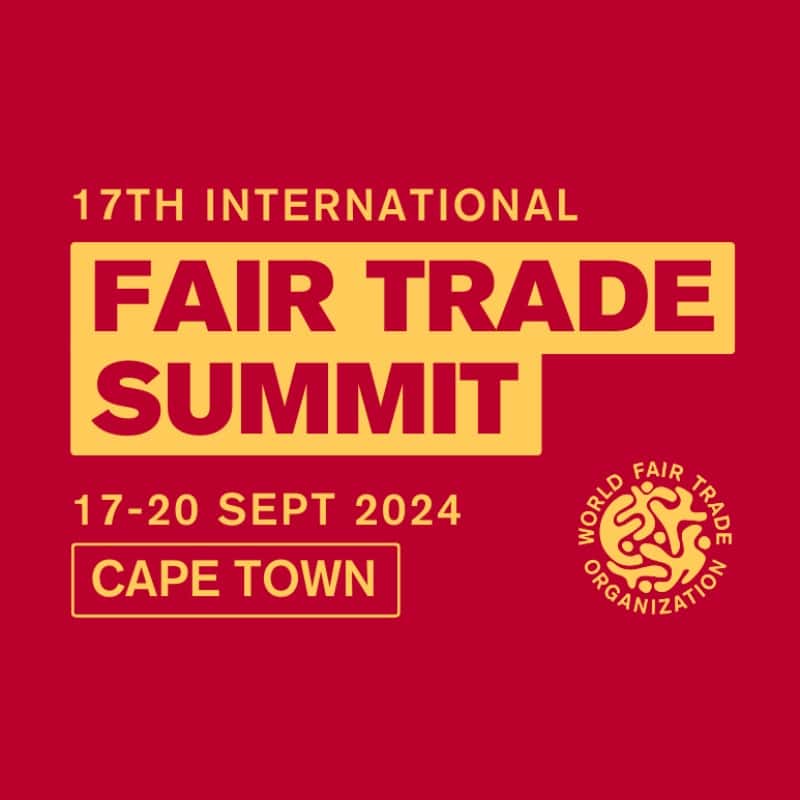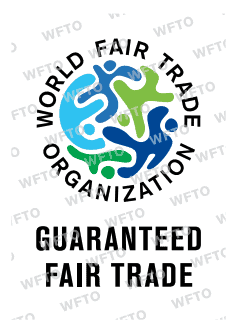COP27 After Thoughts
Each multilateral negotiation about the future shape of our world in a changing climate presents an opportunity to discuss our current economic system – the cause of so many problems in this world, from increasing degradation of our ecosystems, climate change and growing inequality. But it is also an opportunity to show that other business models are future proof to achieve trade, climate, gender and resource justice. In this light, we cannot express our full support for the Sharm el-Sheikh Implementation Plan adopted on Sunday 20th November 2022 at UNFCCC COP27. Even though we welcome the important progress of the newly established loss and damage fund to support climate-affected communities, the Plan lacks steps for effective mitigation and especially that no decision was made on the progressive phase-out of fossil fuels.
As discussed in the “The Fair Trade Movement COP27 Position Paper”, we entered the COP negotiations pushing for a two-fold commitment to both governments and businesses. Durable solutions require a fundamental restructuring of trade flows and supply chains in order to ensure the environmental and human rights’ due diligence at all levels.
Smallholder farmers and SMEs have long been providing feasible solutions to a broken international trade system that has only spurred economic activity at the expense of people and the planet. We welcome the Plan mentioning “the importance of the transition to sustainable lifestyles and sustainable patterns of consumption and production to address climate change”. However, concrete actions related to trade agreements, corporate accountability and support to community businesses should be taken into account to realise this ambition.
Local communities all over the globe (but mostly in the global South) are deeply affected by the disproportional impact of the intersecting climate and economic crises. Disruption along supply chains mostly impacts marginalised producers, leaving them fully exposed to unfair trading relationships. An inclusive and sustainable recovery from climate disasters cannot happen without a functioning and resilient economy in which everyone is guaranteed a fair income and a voice. That’s why the agreement for the creation of a loss and damage fund is a potential step towards climate justice. If adequately funded, it will compensate to rebuild people’s livelihoods and provide a better future to all those whose communities and ecosystems have been destroyed as a consequence of greedy carbon-intensive extractivist practices. Yet, compensation is not enough. For as much as immediate reparations are needed to address current and upcoming damage and loss, we need to also look further than the present and envision fairer and greener patterns of consumption and production.
We welcome the broader mention of other interrelated environmental crises, from food crises, turning to the biodiversity crisis and the energy crisis. This all links to the need for a global financial architecture that directs public (and private) funding towards just and sustainable transitions. We appreciate the Plan highlighting the need to transform our financial system and actors. Ultimately, it should sustain the development of climate-resilient communities by supporting small and medium size enterprises (SMEs) and communities with adequate and accessible climate finance.
Nonetheless, the elephant in the room of the unmentioned fossil fuels phase-out only proves the unacceptable role played by fossil fuel exporting countries and the over 600 lobbyists present there. No false solutions – as investments in ‘transitional’ gas or patented techno fixes – can be pushed onto the future agendas. Silverbullet liberal (and free trade) policy recipes have long been narrated as the only feasible way but have clearly proven not to work.
Social protection and environmental justice are inextricable for a just and equitable transition. That’s why WFTO aims at facilitating an economy with social enterprises that responsibly manage and restore natural resources to safeguard dignified human life and thriving ecosystems. Fair Trade Enterprises have a crucial role to play within the heated dialogues for climate solutions, as they provide functioning business models that don’t compromise ambition for feasibility.
COPs are an essential platform and tool to work for climate justice and build a new economy that accounts for future generations too. However, many more actions need to be taken beyond COPs. Much of the future of our climate depends on those who have already been practising the sought solutions through skilful community recipes, mixing tradition and innovation. By envisioning small-scale solutions, they are eventually shaping the future outlook of the global economy.
For as much as mission-led enterprises have been successfully and profitably working against all odds, they need adequate policies to upscale their impact. The movement of the WFTO members will make sure effective national and local policies, financial support, training and market access will be granted to reshape our markets and regulation by putting people and the planet at the core.
Read more about COP27 outcomes and impacts:
– What are the key outcomes of Cop27 climate summit?, The Guardian (brief)
– Our verdict on COP27: A Polluters’ Parade, Global Witness (analysis)
– Cop27 has shown why a new economic order is vital, The Guardian (opinions)
– Getting out of the food-energy-climate crisis, GRAIN (analysis)
– COP27 will be remembered as a failure – here’s what went wrong, The Conversation (analysis)
Written by Virginia Pignata & Shun Hei (Nathan) Lee
Share This Post
Tags
Contact
- Parallelweg West 9A, 4104 AX Culemborg, The Netherlands
- +31649086439
- info@wfto.com
If you want to contact any of our staff members (not Board) please write to the First Name (ex: Paul)@wfto.com
© 2024 World Fair Trade Organization. All Rights Reserved.

